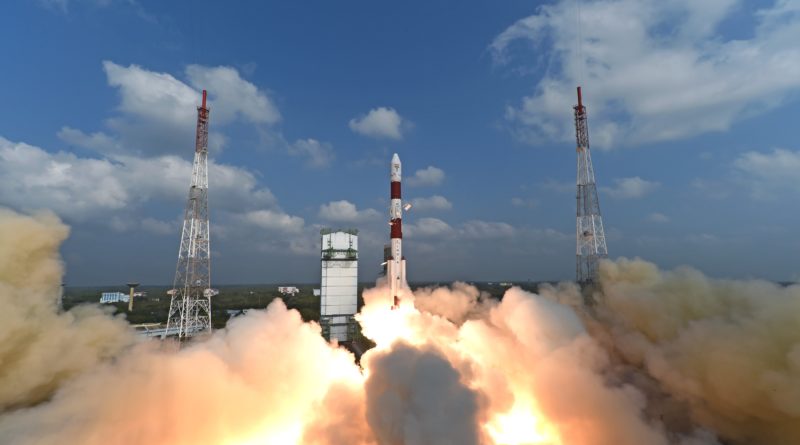India sets record for 104 satellites launched from a single rocket
India drew global attention yesterday, February 15, as their space agency successfully launched 104 satellites into space using a single rocket.
The achievement is considered a milestone in the low-cost space-exploration program of the Indian space agency, reports The Wall Street Journal.
This collection of satellites all came from seven different countries and were launched aboard the Indian Space Research Organization’s (ISRO) Polar Satellite Launch Vehicle on the rocket’s 38th consecutive successful flight.
More than a momentous achievement, the feat helps to cement India’s rising reputation for reliable and cost-effective satellite launches.
ISRO made another “first” back in 2014 when it successfully sent a satellite to Mars’ orbit. This made India the first Asian country to reach the red planet at a cost far less than what the United States and European space agencies spend.
In total, ISRO has already launched 226 satellites into orbit, 180 of which are from foreign countries.
Rajeswari Pillai Rajagopalan, senior fellow in space-security studies at the Observer Research Foundation, acknowledges the achievement: “India’s space program has come a long way.”
Rajagoplan stated that the trend for sending more small (nano) satellites will benefit ISRO due to the cost advantages, compared to launching fewer larger ones.
Mission director B. Jayakumar mentioned that it was quite a challenge to “find real estate (on the PSLV rocket) to accommodate all the satellites.” He adds that a “unique separation sequence” had to be designed to launch the payload of satellites.
According to ISRO, the satellites went into orbit 506 kilometers from Earth and are inclined at an angle of 97.46 degrees to the equator, after a 17-minute flight. The following 12 minutes saw all 104 satellites deployed in sequence.
India’s achievements in low-cost launches will have great repercussions for the future of space exploration as it helps to drive costs down. Lower costs will make space more accessible to more countries and more players, eventually leading to the growth of the space industry into something that even a common man can partake in and appreciate the value of.









